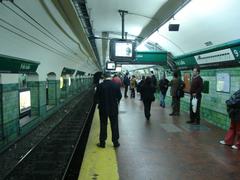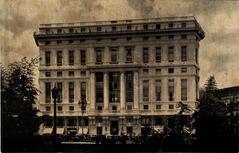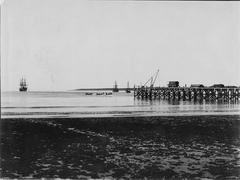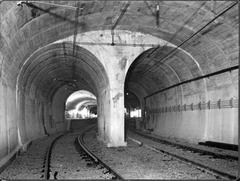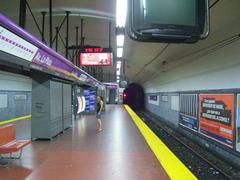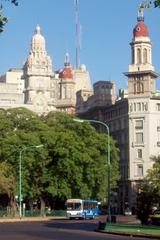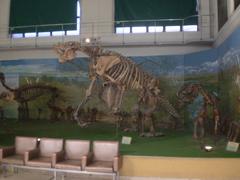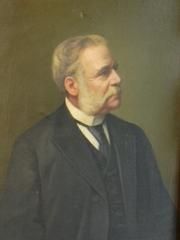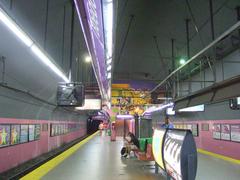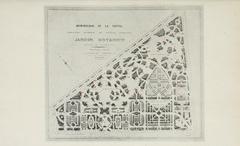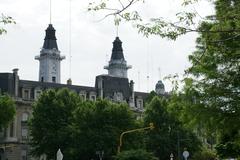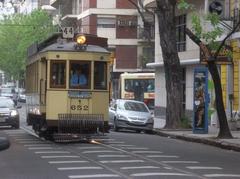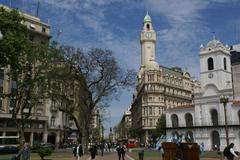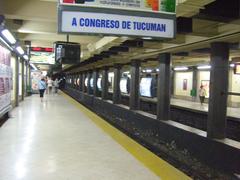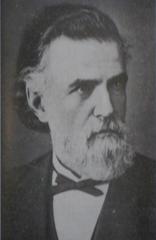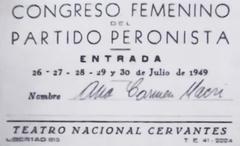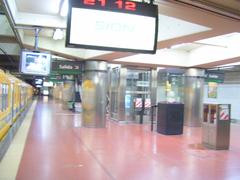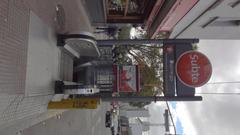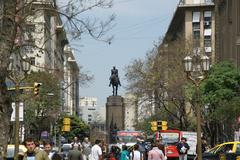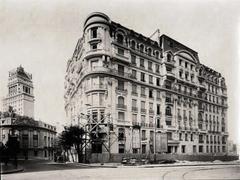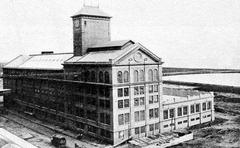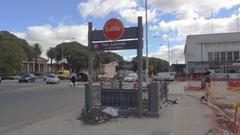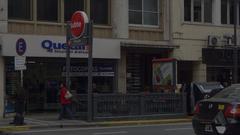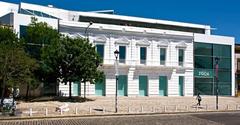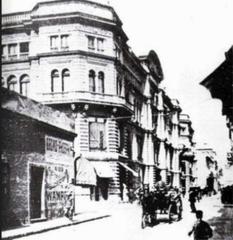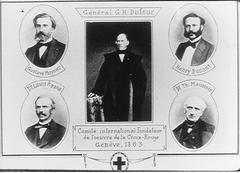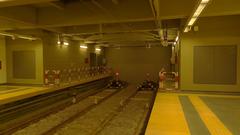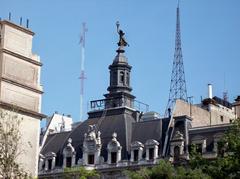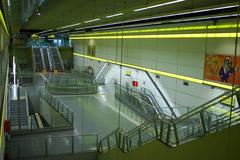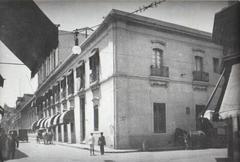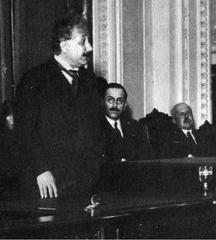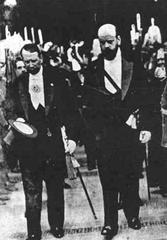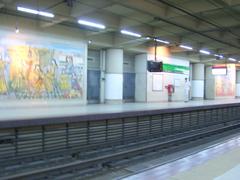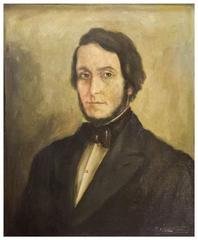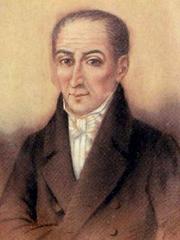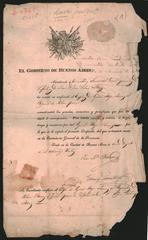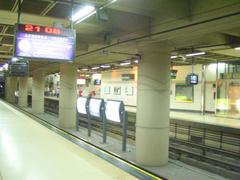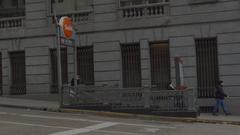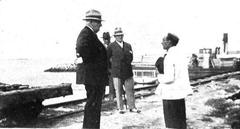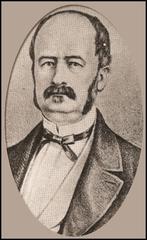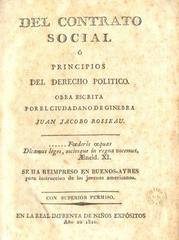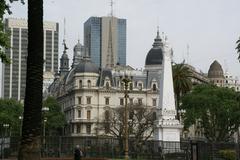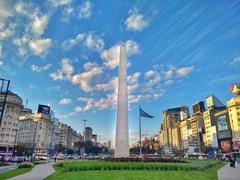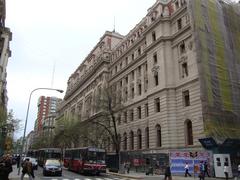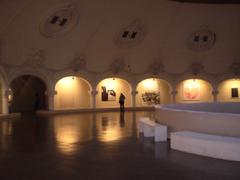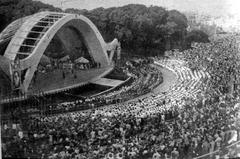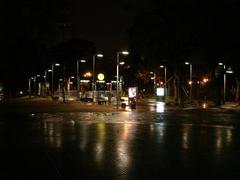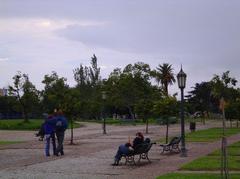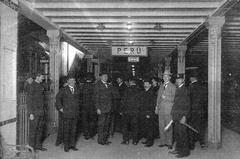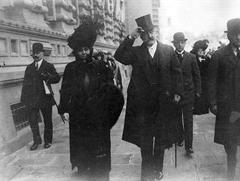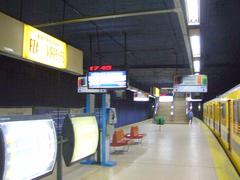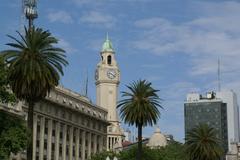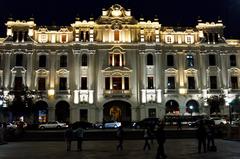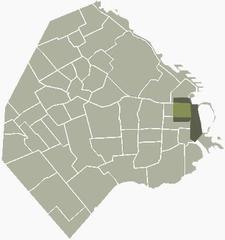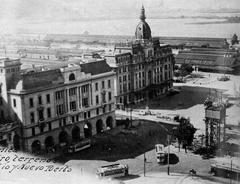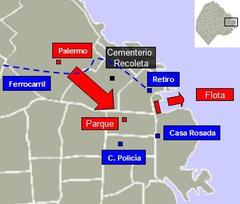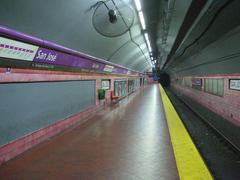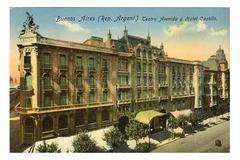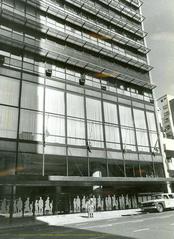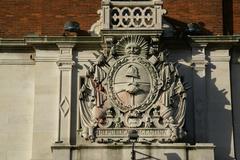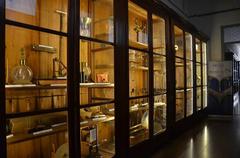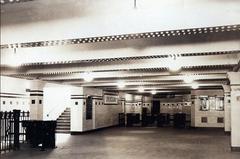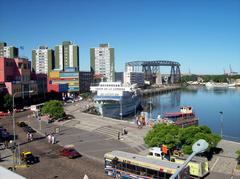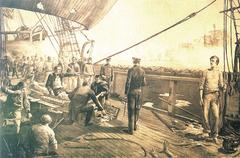Embassy Of The People'S Republic Of China, Buenos Aires
Embassy of the People’s Republic of China in Buenos Aires: Comprehensive Visiting Guide
Date: 03/07/2025
Introduction
The Embassy of the People’s Republic of China in Buenos Aires is a cornerstone of China-Argentina relations, serving as a hub for diplomacy, economic cooperation, cultural exchange, and a variety of consular services. Established after Argentina’s recognition of the PRC in 1972, the embassy reflects the strategic, economic, and cultural partnership that has developed between the two nations. Whether you are seeking consular support, participating in cultural programs, or exploring the evolving geopolitical dynamics between China and Argentina, this guide provides essential information to facilitate your visit and deepen your understanding of the embassy’s role.
For authoritative reference, consult resources such as (Wikipedia), (TravelChinaGuide), and the (Chinese Embassy in Argentina).
Table of Contents
- Historical Background: China-Argentina Relations
- Embassy’s Role in Diplomacy, Economy, and Culture
- Practical Visitor Information
- Cultural Engagement and Community Programs
- Language Support and Emergency Contacts
- Frequently Asked Questions (FAQ)
- Key Milestones
- Embassy Leadership and Structure
- Crisis Management
- Conclusion
- Call to Action
- Sources
Historical Background: China-Argentina Relations
Diplomatic Recognition and Embassy Establishment
Argentina initially established diplomatic ties with the Republic of China (ROC) in 1945. The most significant shift occurred on March 19, 1972, when Argentina officially recognized the People’s Republic of China (PRC), aligning itself with international trends (Wikipedia). Following this move, the Chinese Embassy in Buenos Aires was promptly established to serve as the PRC’s main diplomatic mission in Argentina.
Growth of Bilateral Relations
Since the 1970s, Argentina–China relations have evolved into a comprehensive strategic partnership. The embassy has played a central role in this progress, facilitating high-level visits, trade agreements, and cultural exchanges. In 2004, President Néstor Kirchner’s visit to Beijing marked a new era of economic engagement. By 2020, China had become Argentina’s largest trading partner, and in 2022, Argentina officially joined China’s Belt and Road Initiative (BRI) (Wikipedia), further strengthening bilateral cooperation.
Embassy’s Role in Diplomacy, Economy, and Culture
The Chinese Embassy in Buenos Aires is central to China-Argentina relations:
- Economic Affairs: China is Argentina’s second-largest trading partner. The embassy has facilitated major agreements, including an $18 billion currency swap between the Central Bank of Argentina and the People’s Bank of China (CSIS).
- Geopolitical Influence: The embassy acts as a focal point for diplomatic negotiations and manages sensitive projects, such as the Chinese-operated space station in Neuquén. Despite Argentina’s recent efforts to strengthen U.S. ties, the Chinese Embassy remains a key player in regional diplomacy.
- Cultural Exchange: The embassy organizes events like Chinese New Year, supports language education, and promotes academic and artistic exchanges, fostering mutual understanding and cultural integration (123Embassy).
Practical Visitor Information
Location and Contact Details
- Address: Av. Crisólogo Larralde 5349, Núñez, CABA, Buenos Aires, Argentina (TravelChinaGuide)
- Official Website: Chinese Embassy in Argentina
- Contact: Phone numbers and email addresses are available on the embassy website and the Argentine Ministry of Foreign Affairs.
Visiting Hours and Appointment Policy
- Hours: Monday to Friday, 9:00 AM–12:00 PM and 2:00 PM–5:00 PM. Closed on weekends and public holidays.
- Appointments: Required for all consular services. Book in advance via the embassy website or by phone. Walk-ins are not accepted.
Consular Services Overview
- Visas: Processing for tourist, business, student, and other categories. Prepare a valid passport, application form, photos, and supporting documents (Embassies.net).
- Passport Services: Renewal and replacement for Chinese nationals.
- Notarization & Legalization: For documents used in China or Argentina.
- Emergency Assistance: Support for lost passports, arrests, or medical emergencies.
- Information for Foreign Nationals: Guidance on travel, entry requirements, and legal matters.
Accessibility and Transportation
- Public Transport: Subway Line D to Congreso de Tucumán (approx. 2.5 km from the embassy), and buses 29, 60, and 130 serve the area.
- Taxi/Ride-sharing: Uber, Cabify, and Didi are widely available.
- Parking: Limited street parking; public transport is recommended.
- Accessibility: The embassy provides ramps and accessible entrances. Notify staff ahead for special assistance.
Security and Visitor Protocols
- Identification: Required for entry (passport or national ID).
- Security Screening: Bags and personal items are checked; photography is prohibited inside embassy grounds.
- Dress Code: Business casual is recommended.
- Conduct: Respect staff instructions and maintain decorum.
Nearby Attractions
While in Núñez, visitors can enjoy parks, cafes, and cultural sites. Buenos Aires’ Chinatown (Barrio Chino) in Belgrano is a short drive away and offers an immersive Chinese cultural experience (Vamos Spanish).
Cultural Engagement and Community Programs
The embassy promotes Chinese culture through:
- Chinese New Year and Traditional Festivals: Public celebrations featuring art, cuisine, and performances.
- Language and Educational Exchanges: Scholarships, language courses, and student exchange programs.
- Art Exhibitions and Public Lectures: Hosting events to showcase Chinese and Argentine cultural ties.
For event schedules and participation details, check the embassy’s website and social media.
Language Support and Emergency Contacts
- Languages: Mandarin and Spanish are primary; some staff can assist in English. Bring a translator or use apps if needed.
- Emergency Services: A 24-hour emergency line is available for urgent consular support. Tourist police and medical emergency numbers are also accessible (Secrets of Buenos Aires).
Frequently Asked Questions (FAQ)
Q1: What are the embassy’s visiting hours?
A: Monday to Friday, 9:00 AM–12:00 PM and 2:00 PM–5:00 PM. Closed weekends and holidays.
Q2: Are appointments required?
A: Yes, for all consular services.
Q3: Is the embassy wheelchair accessible?
A: Yes, but notify staff ahead for special assistance.
Q4: Can I take photos inside the embassy?
A: No, photography is not allowed in embassy grounds.
Q5: How do I reach the embassy by public transport?
A: Subway Line D to Congreso de Tucumán, plus a short taxi or bus ride; buses 29, 60, and 130 serve the area.
Key Milestones
- 1972: Formal diplomatic recognition and embassy opening.
- 2004: President Kirchner’s state visit to China.
- 2020: China becomes Argentina’s top trading partner.
- 2022: Argentina joins the Belt and Road Initiative.
- 2025: Embassy publicly rebukes U.S. criticism of China-Argentina financial ties (MercoPress).
Embassy Leadership and Structure
As of July 2025, Ambassador Wang Wei leads the mission, supported by experienced teams in political, economic, cultural, and consular affairs (FMPRC).
Crisis Management
The embassy has demonstrated effective crisis management during events such as the COVID-19 pandemic, coordinating aid and supporting nationals in need. It continues to serve as a mediator and advocate during bilateral tensions.
Conclusion
The Embassy of the People’s Republic of China in Buenos Aires is integral to the dynamic relationship between China and Argentina. By understanding its history, services, and cultural initiatives, visitors can maximize their experience and build bridges across nations. For current procedures and event updates, visit the official embassy site or use digital tools like the Audiala app.
Call to Action
Plan your visit confidently: book your consular appointments online, explore upcoming cultural events, and stay informed by downloading the Audiala app. Follow us on social media for timely updates about diplomatic services and cultural programs in Buenos Aires.
Sources
- Argentina–China relations – Wikipedia
- Chinese Embassy in Argentina – Official Website
- Chinese Embassy Buenos Aires Visiting Information – TravelChinaGuide
- Argentina’s Realignment and China Relations – CSIS
- Chinese Embassy in Buenos Aires Rebukes U.S. Remarks – MercoPress
- 123Embassy – Chinese Embassy in Buenos Aires
- Vamos Spanish – Chinese Culture in Buenos Aires
- Buenos Aires Translators Association
- Embassies.net – China in Buenos Aires
- Secrets of Buenos Aires – Safety
- Short Girl on Tour – Buenos Aires Tips
- The Thorough Tripper – Buenos Aires Travel Tips
- Argentine Ministry of Foreign Affairs – Chinese Embassy
